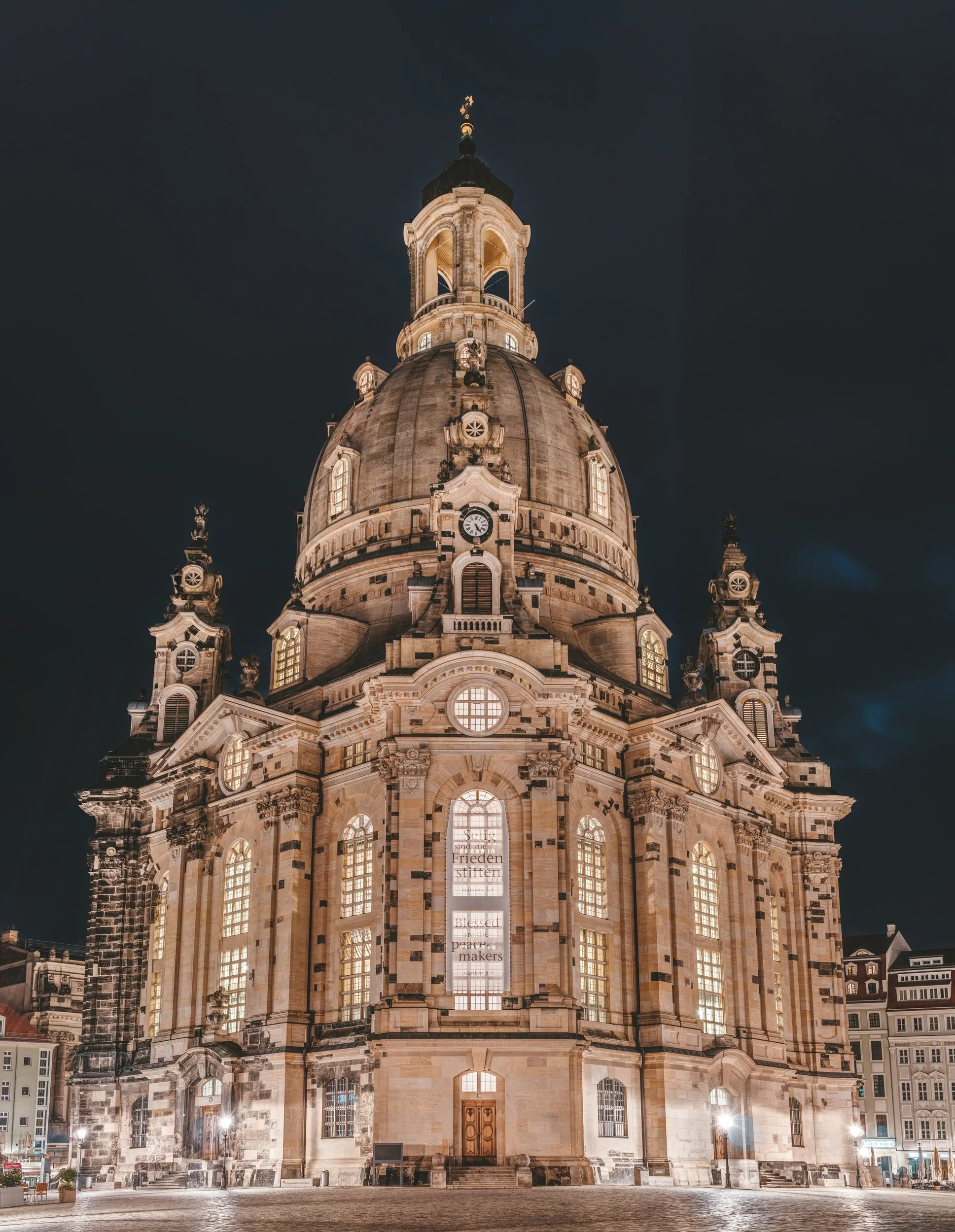Arriving at Christmas in a time of Plague. Rejoicing amidst our Sorrows, helped by JS Bach
“Come as you are, listen and see”
We woke up on Christmas Day with ice flowers on our window panes. I stand by the window, bask in the morning sun streaming in and almost feel joy.
Wherever you are, and however you might feel on this first day of Christmas, I invite you to listen to JS Bach’s grand opening of the Christmas Oratorio. All available instruments, from the tympani to the trumpets, create a magnificent and uplifting musical context to the lyrics, as the choir exhorts us to: Rejoice, exult, rise up,praise what the Highest has done for us…
But wait. In this year of ungraspable loss and isolation you want us to — rejoice? Please try something more realistic. You should be more empathetic to the weary travelers. We come each with his or her heavy burden, we come with grief we cannot name and the merriment of Christmas, especially this Christmas, is too much to bear.
In this second year of the plague, this critique is appropriate. If our Christmas joy depends on happy nativity pageants or romantic Silent Night singing, it will simply be overwhelmed by the grief of this year of loss. If, in a word, Christmas must be Merry, we are doomed this year from the start.
But what if Christmas joy comes from transcending our sorrows? From giving birth to hope in the midst of our sufferings? What if Christmas is not about merriment but about touching a deeper reality in the presence of our sufferings?
JS Bach himself lived a life of disappointment, tragedy, and loss. Still, he translated his experiences into celestial music that holds together the contradictions of our human experience and offers a balm to the weary listener. In his Passion Oratorio he invites us into a tender appreciation of our sorrows, imitating Christ’s passion. And his Christmas Oratorio doesn’t ignore the reality of loss and tragedy. Instead, in his grand opening, the choir invites us, in heartbreaking and repetitive movements, again and again, to bring our sufferings and transform them into a joyous chorus:
Jauchzet, frohlocket! auf, preiset die Tage,
Shout for joy, exult, rise up, glorify the day,
Rühmet, was heute der Höchste getan!
praise what today the highest has done!
Lasset das Zagen, verbannet die Klage,
Abandon hesitation, banish lamentation,
Stimmet voll Jauchzen und Fröhlichkeit an!
begin to sing with rejoicing and exaltation!
Dienet dem Höchsten mit herrlichen Chören,
Serve the highest with glorious choirs,
Laßt uns den Namen des Herrschers verehren!
let us honor the name of the Lord!
The Baroque-style Frauenkirche Dresden (Church of our Lady, Dresden) was built from 1726 through 1743 and was the defining structure in Dresden’s skyline until it was destroyed in the firebombing of Dresden in the middle of February, 1945, just months before the surrender of Germany in WW II. It was rebuilt from 1994-2005 using as much of the original stone as possible, with the difference in color of the stones (the lighter ones are new) serving as a memorial to the destruction and death of the war. The rebuilding was financed entirely from donations that poured in from around the world.
Bach is closely associated with the Frauenkirche and its organ. Bach wanted to be Dresden’s Royal Court Composer but was never appointed. He played the inaugural concert on the organ when the church was completed and more than 5 other public performances at the Royal Court and the Frauenkirche.
You can find a virtual tour of the rebuilt church here…
“Abandon hesitation”
You would not think that hesitation and lamentation could serve as a theme given a musical introduction like the Christmas Oratorio. But look at the text and there they are. We are called, says Bach, to abandon them. Bach surely knew sorrow, and knew that joy does not come easily nor can it be produced cheaply. But his music and lyrics invite us into a deeper reality where the joy that lies at the heart of all things can transcend sorrow and despair, and even be transformed and deepened by them. In this way, he consoles us in our sorrows as he invites us into this transformation. More so, it is the highest service we can do: To accept the gift of Christmas not despite, but because of and within our sorrows.
So for all who long for consolation this Christmas what could be more consoling than hearing the opening chorus of Bach’s Christmas Oratorio performed in the Dresdener Frauenkirche, Germany, a symbol of destruction and revival. The building, and the movement that rebuilt it after it lay in ruin for more than 50 years, is a telling example of the destruction, grief, and sorrow in our world. So bring your broken heart and come, listen, as Bach invites us into the mystery of Christmas Joy. A joy which isn’t merry but breaks through when we have transformed the way we carry our burden.
“Bring your broken heart...”
There is a time for lamentation and a time to let go of it. A time to lighten the burden, still carrying it, still aware of its weight, but choosing to not despair over it. Choosing to cherish, to participate, and even to rejoice in the deep joy waiting at the center of things.
The risk of turning away is that in all our complaining about our lot, the year, the political situation, the poverty, destruction, disease, and death, – if we dwell only in this we might loose heart, become bitter, we might despair of hope. There is a difference between holding our sorrows and despairing over them.
"Lasset das Zagen, Verbannet die Klage…”
Some translate the German “Verbannet die Klage” with “reject despair.” This translation works with Bach’s intention: “Zagen” is a state of loosing hope, of becoming afraid and withdrawing, of lacking courage. So Bach enjoins us here to not loose ourselves in endless “Klagen.” Do not lose spirit, do not lose hope. More freely translated you might say: “Take courage! Reject despair!” And here lies the turn to Joy.
So despair, the loss of hope, is what stands in opposition to real Christmas joy. Because Christmas joy is no merriment but the birth of hope for all who are willing to give up despair and to cling to hope in their hearts. Christmas calls us to cradle hope, to see hope, to chose hope, to give birth to hope. Holding onto hope is the highest task a human can achieve, says Kierkegaard.
The Joy that comes from this is not merriment but exactly how Bach has it: the letting go of hesitation and false lamentation. Seeing the light amidst the dark. Arriving at Christmas with an open heart.
Practice
So our practice for this First Day of Christmas is an invitation to listen to Bach today as he calls us from Dresden. Listen, as St Benedict has it, with the ear of your heart. Read with the eyes of your soul. See with open eyes…
Rise up.
Take courage.
Let go of Despair.
Soften your heart.
Sing Loudly.
Again.
And May Christmas find you where you are, Almut & Chuck
This post was part of our 12 Days of Christmas Series 2020/21: Cradling Hope.You can join us now for the new season, clicking on the banner above.
Peace and Blessings, Almut & Chuck






